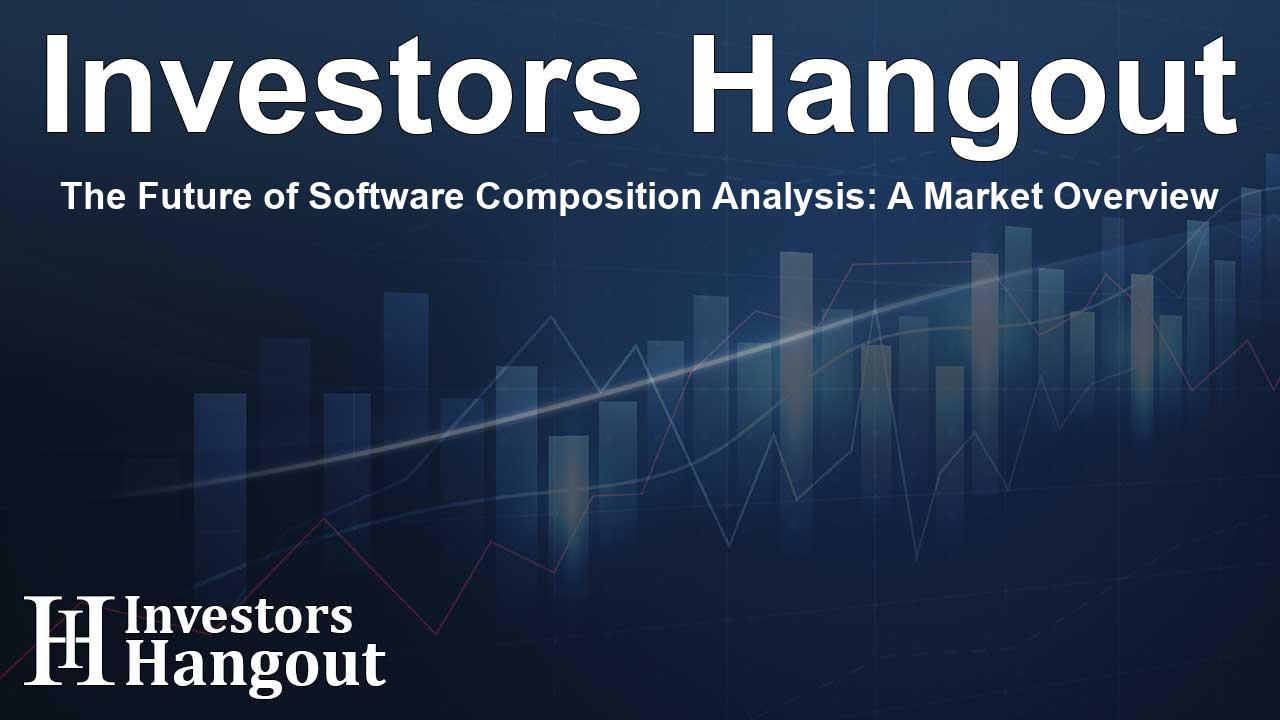The Future of Software Composition Analysis: A Market Overview

Software Composition Analysis Market Growth Insights
In an evolving digital era, the Software Composition Analysis (SCA) market is charting a remarkable growth trajectory. According to a recent publication from QKS Group, a prominent market intelligence advisory firm, this sector is forecasted to expand at a compound annual growth rate (CAGR) of 7.20% through 2030. This growth highlights the increasing necessity for organizations to safeguard their software supply chains while managing risks associated with open-source components.
The Importance of Software Composition Analysis
Organizations today are more focused than ever on the security of their software supply chains. SCA has emerged as a crucial tool for businesses striving to identify and mitigate risks, particularly those arising from the use of open-source software. This growing focus on software integrity is particularly prevalent across sectors such as finance, healthcare, retail, telecom, and manufacturing, where rapid digital transformation is taking place.
Adapting to Regulatory Frameworks
As regulations surrounding software compliance become more stringent, the demand for SCA tools rises correspondingly. These tools not only assist organizations in adhering to legal mandates but also help to enhance development efficiency and reduce the potential for security vulnerabilities. Technologies integrating real-time threat intelligence and automated policy enforcement are becoming standard practice within SCA solutions, transforming how organizations manage their software components throughout the development lifecycle.
Market Analysis and Competitive Landscape
QKS Group's report offers an extensive examination of the global SCA field, assessing both worldwide and regional trends in platform adoption, competitive dynamics, and market development forecasts. Key industry players discussed in the report include Black Duck, CAST, Checkmarx, and Snyk, among others. The report emphasizes the necessity for SCA vendors to maintain real-time visibility and deliver enterprise-grade scalability.
Key Insights from QKS Group
- Global and Regional Market Analysis: Insightful examination of SCA adoption trends globally and across various regions.
- Competitive Benchmarking: An analysis comparing the market positioning of leading SCA vendors.
- Sector-Specific Insights: Identification of key sectors investing heavily in SCA solutions.
- Technology Disruption: The intersection of AI and automation is revolutionizing application security, allowing teams to proactively manage vulnerabilities.
The Role of AI and Automation in SCA
Artificial Intelligence is paving a new path for SCA solutions, enabling organizations to automate critical processes such as vulnerability detection and compliance checks. This integration not only enhances operational efficiency but also allows software development and security teams to work seamlessly together. By prioritizing resilience and security at every stage of software development, organizations can build a trustworthy framework that fosters innovation without sacrificing safety.
Challenges and Considerations
Despite the promising growth outlook, SCA vendors face challenges in staying ahead of rapidly evolving technology and regulatory landscapes. The need for timely updates and enhancements to existing solutions is paramount in addressing increasingly sophisticated cyber threats and compliance requirements. Vendors must focus on delivering innovations that offer substantial business impact and build user confidence in their platforms.
Conclusion: The Future of SCA
As organizations continue to prioritize software security and compliance, the demand for robust Software Composition Analysis solutions will inevitably grow. The findings from QKS Group underscore the critical role SCA plays in the broader landscape of digital transformation. Firms that adopt a proactive approach to managing their software supply chains with advanced SCA capabilities will likely gain a competitive edge in the market.
Frequently Asked Questions
What is Software Composition Analysis?
Software Composition Analysis (SCA) is a process that helps organizations manage the risk of using open-source components in their software by identifying vulnerabilities and ensuring compliance with licensing requirements.
Why is the SCA market growing?
The growth in the SCA market is driven by increasing regulatory demands, the need for secure software supply chains, and the accelerated pace of digital transformation across industries.
How does AI enhance SCA solutions?
AI enhances SCA solutions by enabling real-time threat intelligence and automated policy enforcement, which significantly improves the efficiency of vulnerability detection and compliance management.
Who are the key players in the SCA market?
Key players in the SCA market include Black Duck, Checkmarx, Snyk, and Veracode, among others, all of whom offer various solutions tailored to different aspects of software security.
What sectors are investing in SCA solutions?
Industries such as finance, healthcare, retail, telecom, and manufacturing are among the top sectors investing heavily in SCA solutions to enhance their software security and compliance.
About The Author
Contact Olivia Taylor privately here. Or send an email with ATTN: Olivia Taylor as the subject to contact@investorshangout.com.
About Investors Hangout
Investors Hangout is a leading online stock forum for financial discussion and learning, offering a wide range of free tools and resources. It draws in traders of all levels, who exchange market knowledge, investigate trading tactics, and keep an eye on industry developments in real time. Featuring financial articles, stock message boards, quotes, charts, company profiles, and live news updates. Through cooperative learning and a wealth of informational resources, it helps users from novices creating their first portfolios to experts honing their techniques. Join Investors Hangout today: https://investorshangout.com/
The content of this article is based on factual, publicly available information and does not represent legal, financial, or investment advice. Investors Hangout does not offer financial advice, and the author is not a licensed financial advisor. Consult a qualified advisor before making any financial or investment decisions based on this article. This article should not be considered advice to purchase, sell, or hold any securities or other investments. If any of the material provided here is inaccurate, please contact us for corrections.
